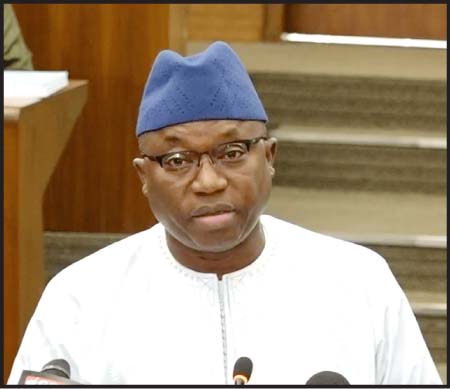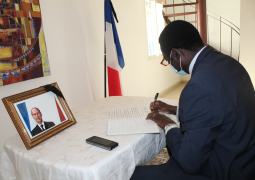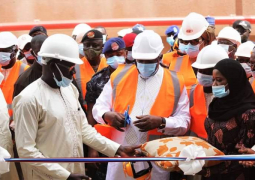
While informing the lawmakers of how much the virus has negatively impacted the growth prospects across the globe, he narrated how the outbreak equally dampened the earlier hopeful economic growth forecasts.
The Gambia is not prone to Covid-19 and like many emerging countries has been hit badly.
The Gambia has also been badly hit by the pandemic, taking the country off the sustained growth path it has trodden since 2017, with GDP growth recording a negative figure for the first time in 9 years,” the finance minister said.
Mamburey said: “Preliminary assessment of the macro-economic impact of the pandemic on the Gambian economy indicates that there is a significant slowdown in GDP, decline in tax revenues, increased unbudgeted expenditures in health, relief support for vulnerable individuals and economic stimulus packages for businesses.”
The Gambian economy was projected to perform well in 2020 prior to the emergence of the pandemic, but this projection has suffered a major setback.
The Finance minister continued: “Initial growth estimates for 2020 have been revised downwards from 6.5 percent, to -1.5 percent following the outbreak of the pandemic. The new growth estimates are based on the shocks associated with the closure of airports, land borders and lack of tourism activities.
The government’s announcement of the lock down to prevent the spread of the virus had its own consequences.
“The COVID-19 impacted revenue collections for the year due to factors such as closure of the airspace and land borders, downsizing of government operations, closure of the hospitality industry, ban on re-export trade and a general drop in the demand for goods and services.
“The Gambia Revenue Authority implemented a number of policy and administrative measures to support businesses, which included an extension of tax return filing and payment deadlines; suspension of penalty and interest charges for late filing; 20 percent reduction on the CIF value on imported food items and hygiene products; and extension of payment plan for businesses in tax arrears or financial difficulties due to the pandemic,” he informed.
Moreover, the minister said “the poor performance of developed economies, coupled with travel restrictions threatens the performance of the 2020/2021 tourist season and undoubtedly, the level of remittances.”
Together with domestic market challenges, this poses a difficult path to the end of the year and an urgent need for strong policy response on the road to economic recovery in 2021.
Changes in commodity prices are also expected to have an impact on the Gambia economy, according to the minister.
“The expected rise in global commodity prices on account of tighter supply conditions and supply chain disruptions are a cause for concern considering The Gambia’s heavy dependence on imports of staple commodities like rice and oil. The slow rebound in petroleum prices would mean increases in domestic pump prices. Additionally, the advent of a second wave of the virus in other parts of the world could mean further disruptions in supply chains, threatening oil imports, hence oil revenue collections.”




